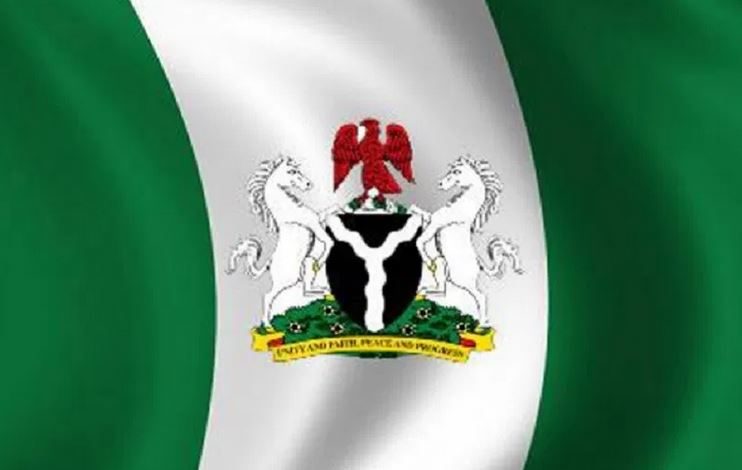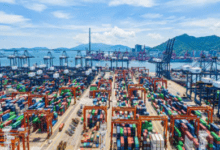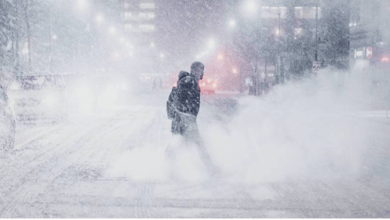
10 Factors Affecting National Unity In Nigeria
Factors Affecting National Unity In Nigeria – National unity refers to the sense of togetherness and cohesion among the diverse ethnic and religious groups within a country. In Nigeria, national unity has been a longstanding issue due to the country’s complex ethnic and religious makeup.InformationGuideNigeria
Despite this diversity, there have been efforts to promote national unity in Nigeria through various means such as promoting national symbols and shared values, as well as addressing issues that have historically divided the country such as ethnic and religious tensions. However, these efforts have met with mixed success and the issue of national unity in Nigeria remains a complex and ongoing challenge.
👉 Relocate to Canada Today!
Live, Study and Work in Canada. No Payment is Required! Hurry Now click here to Apply >> Immigrate to CanadaRead Also: 10 Factors Affecting Nationalism and Patriotism in Nigeria
What is National Unity?
National unity refers to the sense of cohesion and a common identity among the citizens of a country. It is characterized by a shared sense of purpose and loyalty to the nation and its values. National unity can be strengthened through a variety of means, including social programs, cultural events, and shared national experiences. It is often seen as a key factor in maintaining a stable and peaceful society.
Read Also: Factors Influencing Nigeria’s Demand for Goods and Services
Types of National Unity in Nigeria
There are several types of national unity in Nigeria, including:
1. Ethnic Unity:
This refers to the sense of unity and belonging that Nigerians from different ethnic groups feel towards one another.
2. Religious Unity:
This refers to the sense of unity and belonging that Nigerians of different religious faiths feel towards one another.
3. Cultural Unity:
This refers to the shared cultural heritage and traditions that bring Nigerians together.
4. Linguistic Unity:
This refers to the common use of English as a unifying language in Nigeria.
👉 Relocate to Canada Today!
Live, Study and Work in Canada. No Payment is Required! Hurry Now click here to Apply >> Immigrate to Canada5. Political Unity:
This refers to the sense of unity and belonging that Nigerians feel towards their country as a political entity.
Read Also: Factors Affecting Education in Nigeria
Advantages of National Unity in Nigeria10 Economic Challenges In Nigeria
National unity in Nigeria can bring many benefits, including:
1. Social Cohesion:
A united nation is more likely to experience social harmony, as people from different backgrounds come together to work towards common goals.NYSC Portal
2. Economic Growth:
National unity can lead to greater economic prosperity, as a united nation is better able to attract investment and promote trade.
3. Political Stability:
A united nation is more likely to experience stability and continuity in its political leadership, which can lead to more effective governance.15 Best Industries in Nigeria
4. National Security:
A united nation is better able to defend itself against external threats, as united people are more likely to support their government in times of crisis.JAMB Portal
5. Stronger Representation:
A united nation is better able to speak with one voice in international forums, which can lead to greater influence and respect on the global stage.
National Unity and the Nigerian Society
Nigeria is a country located in West Africa that gained independence from British colonial rule in 1960. Since then, the country has struggled to achieve a sense of national unity due to several factors, including ethnic and religious diversity, economic inequality, and political corruption.
One of the main sources of division in Nigeria is the country’s ethnic makeup, which is made up of over 250 different ethnic groups. The three largest ethnic groups are the Hausa and Fulani in the north, the Yoruba in the southwest, and the Igbo in the southeast. Each of these groups has its language, culture, and history, and they have sometimes conflicted with one another.
Another source of division in Nigeria is religion, with the majority of the population being Muslim in the north and Christian in the south. This religious divide has also led to conflicts, particularly in the form of sectarian violence.200 Romantic Love Message
Economic inequality is also a significant problem in Nigeria, with a small wealthy elite controlling much of the country’s wealth and resources, while the majority of the population lives in poverty. This inequality has led to social and economic unrest, particularly in the form of protests and strikes.
Finally, political corruption and mismanagement have also contributed to Nigeria’s lack of national unity. Many politicians have been accused of embezzlement and abuse of power, and the government has been criticized for its inability to effectively address issues such as poverty and corruption.
However, Nigeria’s history is marked by a struggle to achieve a sense of national unity, due to a combination of ethnic and religious diversity, economic inequality, and political corruption.
Read Also: 10 Factors Affecting Leadership in Nigeria
Factors affecting National Unity in Nigeria
Several factors affect national unity in Nigeria, including:105 Good Morning Love Messages
1. Ethnic and Religious Diversity:
Nigeria is home to over 250 ethnic groups, each with its language, culture, and traditions. This diversity sometimes leads to tension and division among different groups.
2. Economic Inequality:
There are significant economic disparities between different regions and groups in Nigeria, which foster feelings of resentment and discontent.
3. Political Corruption:
Corruption is a widespread problem in Nigeria, and it erodes trust in government and institutions, leading to feelings of alienation and cynicism.
4. Historical Grievances:
Many groups in Nigeria have deep-seated historical grievances stemming from past injustices, such as the forced displacement of communities or ethnic cleansing.
5. Lack of Access to Education:
Education is a key factor in fostering national unity, but in Nigeria, many people, especially in rural areas, do not have access to quality education.
6. Lack of Infrastructure:
Nigeria’s lack of infrastructure, including poor transportation, communication, and healthcare facilities creates barriers to national unity by making it difficult for people to connect.
7. Lack of Political Representation:
Many groups in Nigeria feel that they are not adequately represented in government, leading to feelings of marginalization and alienation.
8. Political and Religious Extremism:
Extremist ideologies are divisive and can lead to violence and conflict, both of which can undermine national unity.
9. Youth Unemployment:
High youth unemployment lead to social unrest and crime, which can further divide the nation.
10. Poor Governance:
Poor governance leads to a lack of trust in government, leading to feelings of aFactors Affecting National Unity In Nigeria
Read Also: 10 Factors Affecting Labor Market in Nigeria
Conclusion
National unity in Nigeria is a crucial goal that requires continuous efforts from all sectors of society. Despite facing challenges such as ethnic and religious divisions, corruption, and economic inequality, many Nigerians are working towards greater national cohesion. To achieve national unity, it is important to address the underlying issues that contribute to divisions such as poverty, lack of access to education, and corruption. Achieving national unity will lead to a more stable, prosperous, and peaceful nation for all Nigerians.
Check JAMB Result
Check and Confirm: How much is Dollar to Naira







